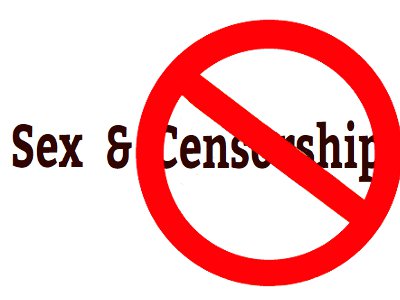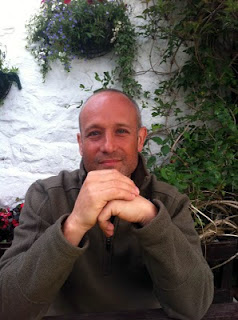Fighting the Good Fight Against Censorship

By Peter Berton
LONDON – Jerry Barnett didn’t set out to be a free speech defender. Instead, the former owner of Strictly Broadband — who describes himself as a “technologist by background” — says he was pushed into defending communication liberty by the UK’s Authority for Television on Demand’s heavy-handed attempts to censor online adult content.
In response to what Barnett calls the UK government’s “sexualization panic,” Barnett founded the Sex & Censorship campaign, which is dedicated to defending free speech and sexual freedom. As YNOT.com learned, Barnett has traveled a long, twisting path from a career in technology to fighting draconian porn censorship.
YNOT.com: If not in the adult industry, where did you start?
Jerry Barnett: I have a technology background. From the mid-1980s till mid-’90s, I worked in the computing software and hardware industry, which took me regularly to the U.S. west coast.
It was an exciting time to be working in that industry, in its relatively early days and with the technology evolving at breakneck speed. The culture in Silicon Valley and San Francisco before the dot-com boom was exciting, with software start-ups appearing all the time. I first encountered the internet in 1988.
When I saw my first web browser in about 1993, I was amazed by the potential, and I exited corporate life to set up a web software business. One of my first customers wanted to build an adult site, so I ended up building one of the first big adult websites.
 We launched the site in 1995, and its growth was astounding. From there, I continued to provide software and services to the adult industry.
We launched the site in 1995, and its growth was astounding. From there, I continued to provide software and services to the adult industry.
In 2004, I finally decided to launch my own site, Strictly Broadband, which was the UK’s only VOD site and rapidly became one of the best known sites in the country.
How did the UK government respond to the advent of internet pornography?
Initially, the authorities were taken by surprise by the internet, and the censorship laws for video and TV didn’t apply online. But bit by bit, they have attempted to regain control.
As chairman of the Adult Industry Trade Association — AITA, now defunct — I was a lobbyist for the industry. When ATVOD came into existence, we realized their age-verification rule — called Rule 11 — could not be implemented by existing businesses without suffering serious, or fatal, damage to revenues.
I set out to talk to ATVOD and find ways in which the industry could work with them to create more reasonable regulation. Their response was to single me out, even to the extent of calling my business “reckless” in the national press. So, ultimately, I had to sell my sites and close my business.
How has UK online censorship evolved over the years?
Quite simply, it’s getting worse, and that trend is accelerating. For the past 30 years, Britain has seen an increasing weight of laws designed to restrict access to content, especially sexual content.
Over time, the laws have become more draconian. It’s a shame. For some reason, the British authorities have tried to resist the rise of global communications in a way that hasn’t happened in most democratic countries.
Many of the laws here would simply be unconstitutional in the United States. We don’t have a First Amendment in the UK, but we sure need one!
Who benefits from censorship in the UK?
A wide range of interests are involved. There are several anti-porn campaign groups that seem to be well-funded. We also have a censorship bureaucracy that has seen its power eroded by the internet and is trying to reclaim control.
Additionally, I suspect much of the mass media would like to return to a world without Twitter and blogs, where they control the message.
Is the bid for censorship ultimately about power?
Yes, primarily, although there are various interests involved. As I’m sure is also true in the U.S., some campaigners just hate displays of sexuality and would like to eradicate them. But this is mostly about power: The person who decides which websites can be blocked is a powerful person indeed.
Sadly, some members of the UK adult industry also see a competitive advantage to be gained from closing the UK market to American competition, so even the industry is divided about whether censorship is a good idea.
So where does this leave you?
The Sex & Censorship campaign is part of a very broad coalition of anti-censorship, sexual freedom and free speech groups and individuals in [the UK]. The British have a poor record of protecting our free speech, but I think that is changing.
I’m working on a book, which I hope to publish early in 2014. I will be a keynote speaker at an academic conference on censorship next April and will continue to make media appearances to oppose the varying anti-sex myths that circulate in the media.
The campaign needs some more funding to take our plans forward over the next few months, so I will be approaching adult businesses for their support. Anyone who would like to support in any way should contact me via the website SexAndCensorship.org.
Readers looking for more information about Barnett and his campaign may wish to read his opinion pieces “Why is the UK the Most Censored Nation in Europe?” and “Claire Perry’s ‘Porn Filter’ is Internet Censorship v1.0.”









